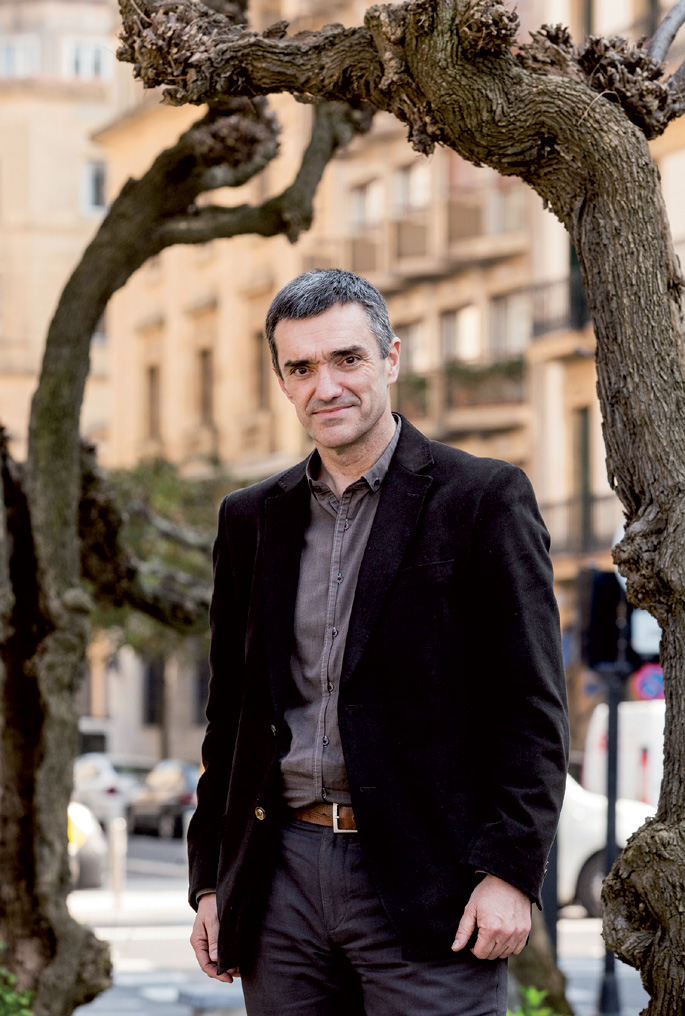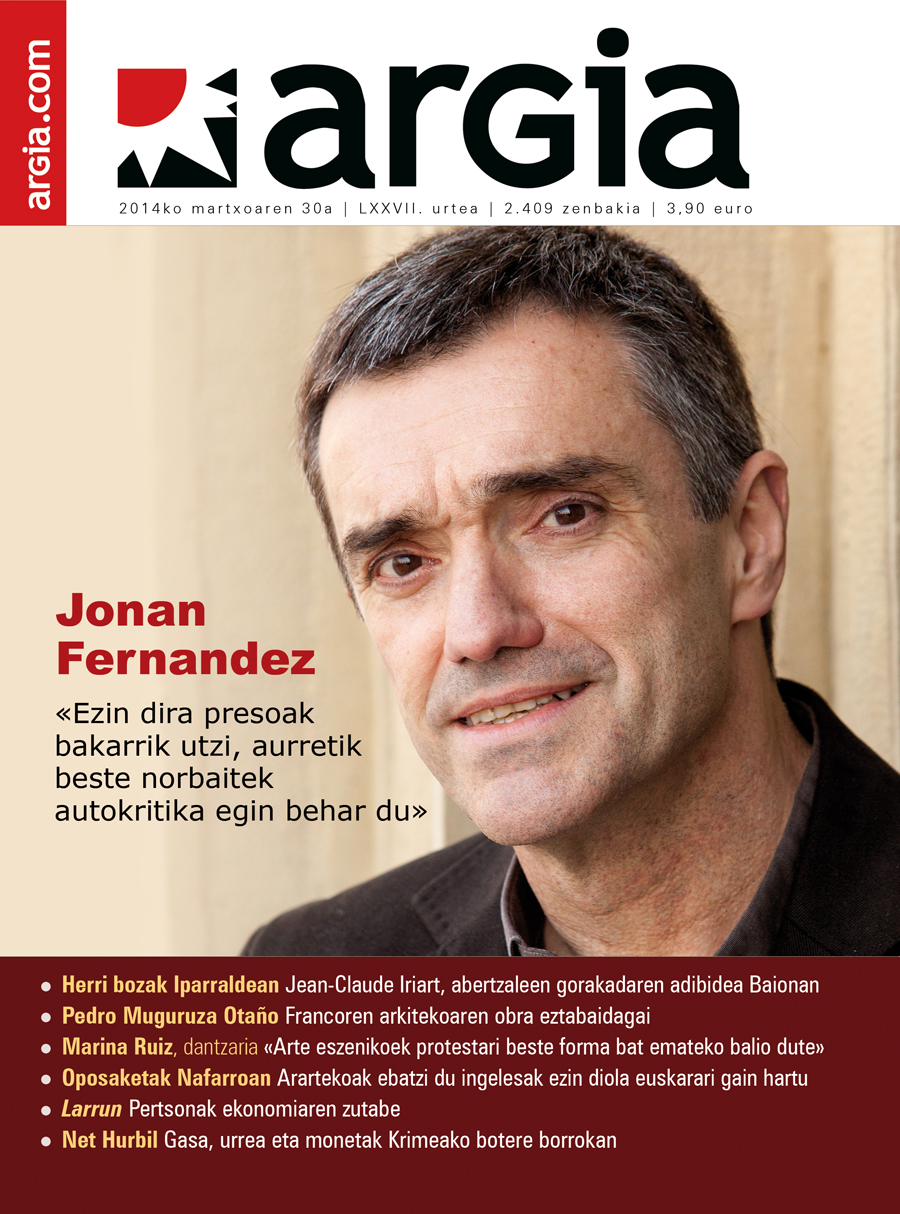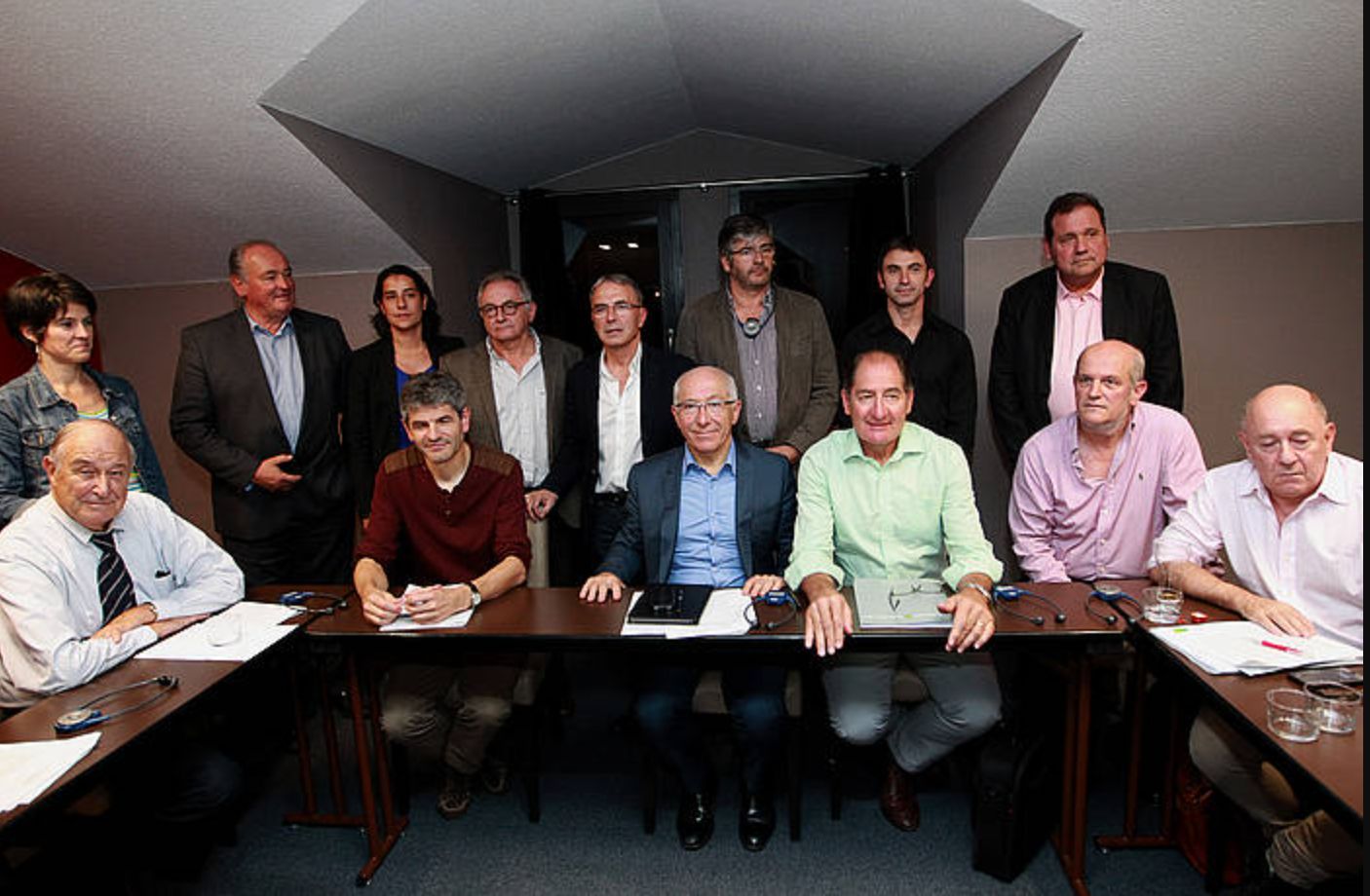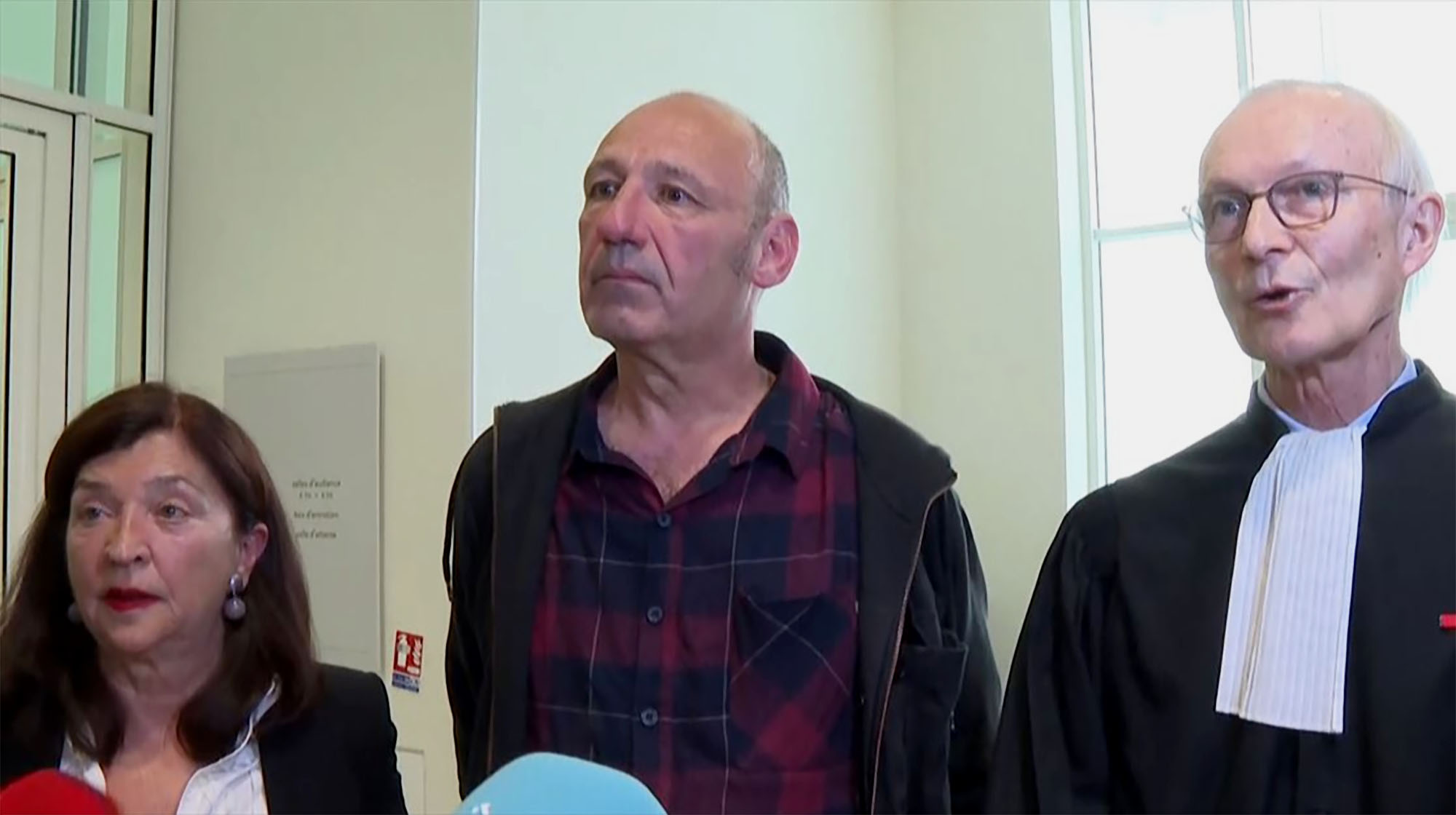"It is critical to recognize that the harm done to the victims has not been fair"
- After passing through HB, Territory, Elkarri, Lokarri and Baketik, Jonan Fernández (Tolosa 1962) has been secretary of Peace and Coexistence of the Basque Government since early 2013. Work in the fields of peace, mediation, coexistence and human rights gives it a solid body to address the task from trust. It can be a sign of the difficulties of work: your words are optimistic, but your mood also shows a certain discouragement.

You have just presented the data of the Basque Government's sociometer on peace and coexistence. What would you highlight?
That there is social consensus that there is no consensus in politics. There is a broad social consensus that constitutes the ethical and democratic centrality at the social level. These consensus points are present in all electoral groups. It allows you to be optimistic.
Society sees positively the opportunities for peace and coexistence that open up for the future, while it is sometimes heard that society is losing interest in these issues. It sounds like a contradiction.
No. The survey shows that peace was once seen as a major problem and now as a great opportunity for peace. 81% of society is optimistic about this issue, but sees some blockade.
That means that the will of society should be harnessed in order to move forward.
Yes, and also some of the knots that exist in the world of parties are socially resolved. Some examples: all victims must be treated in the same way, all human rights violations must be committed, penitentiary policy must be changed... There is a great consensus on these and other issues and, therefore, these issues must be developed.
It is curious that at one time the institutions were mobilizing society against ETA, but today they are not mobilizing for peace.
Yes, there may be some explanations: one, now there are other serious problems, the crisis, the unemployment… Two, so many years of bad living and after the attacks, society has been reassured. Three, the arrival was too late. In the Sociometer, however, it is clear that peace is an important issue in society.
You need a baseline diagnosis for everything. In terms of peace and coexistence, how are we now?
We are fine, we have improved considerably, but much remains to be done.
Both Elkarri and Lokarri have stressed that the methodology for a peace process is essential. What is the methodology here?
The peace plan has a clear methodology. This medology clearly distinguishes the political conflict from peace and coexistence. In the latter two areas, the past, the present and the future must be dealt with separately. For the dialogue between the parties, however, there is no methodology and it would be very important to set in motion the Basque Parliament’s Peace and Coexistence Report.
Last January you were in Northern Ireland. What is the difference between the peace processes here and there?
A lot of things, but I would highlight one. There is a social problem there that creates political problems. Here, however, is much more a political problem, with social consequences. Our society is integrated and coexistence is normal and not in Northern Ireland.
That's society. What about the peace process?
The biggest difference is that it was a multilateral process and it is unilateral.
We talk about the peace process, but there are people here who deny that there is a peace process. Can we move forward without agreeing that one name or another should be made?
That is always the case, in other times the Abertzale left has also denied that there is a peace process. We have to go ahead, there is no other way. After all, what needs to be resolved are concrete problems: the issue of victims, prison policy, coexistence in the villages, education, memory… and we are going to look for form.
You said that ETA was late and that the payment scheme is exhausted. This refers to force, that is, it seems that if it is strength in the aspects that have to be negotiated or agreed upon, it is easier to speak and negotiate.
I don't think it's just that. Good time management is very important. In Northern Ireland, the 1990s was conducive to the multilateral process. Perhaps there have also been good times here, but if you waste your possibilities, the opportunities are exhausted, society looks elsewhere, it does not believe.
But the sociometer shows that society doesn't look any other way. At the moment, what you are looking at the other side is the Government of Spain.
In Algiers' choice or in the Lizarra-Garazi truce, there was a great social illusion. But society increasingly believes less and less in these processes, and that needs to be measured. As a reflection, I would propose the approach I am going to make: The steps taken by ETA are late and, to a large extent, there is an explanation for some of the current difficulties. But the important thing is that, in the steps to be taken in the future, will it be late again?
There is broad consensus in society and in the political arena on what ETA has come late, but on the other hand, it has long been told that “you can talk about the weapons that are left and what are not political issues”. But he has left the guns and now he does not want to speak.
We have all asked ETA to leave the guns again and again, and they have decided it to be now and we all have to accept that now is the time to solve the problem, but some say that now is not the time and there is the problem.
And so when is the time?
Let's take an example of Sortu's legalization to make an analysis of the situation and not accuse anyone: it was done from one side to the other, a step from zero to a hundred, di-da. They all applauded and, moreover, paid off because the Abertzale left made it legal. But, for example, managing the time that is being spent in the area of prisoners and in disarmament raises doubts.
You say that the movements that every prisoner has to make now, di-da, should be made.
Not only that. Prisoners cannot be left alone in the face of this responsibility and they should be made easier by the way; therefore, another should make collective self-criticism of the past, if not fair. Acknowledging the damage caused is not enough, that is, “I have slain you and I recognize you”, but that has no value.
And what do the Abertzale left or ETA have to say?
I know what I would write, but that's what they have to do. ETA has caused at least 850 deaths and, in order to comply with the law and have credibility in society, it has to analyse what has happened in the past with a self-critical sense. Otherwise it's not worth it. It is essential to recognise that the damage done to the victims has not been fair. If the Abertzale left does not think this is right, we will have to look for some other formula, but without losing the sense of self-criticism. And by this I don't mean that only the Abertzale left has to do self-criticism, everyone has to do it, but I say it because we're talking about the Abertzale left and that now affects prison policy.
The question is where the limit is: “I’ve been wrong that way,” that is to say or deny a 50-year political journey.
I don't think you're being asked for all of that. We talk about human rights violations and when we talk about the GAL, torture, memory of Franco… we talk about truth, justice and reparation. In the case of ETA the same applies.
In the case of ETA there has been truth and the punishment, in other cases not, there has been impunity.
In the case of ETA there has been no impunity, but part of society has given its support to the human rights violations committed by ETA, which gives them serious added value. Some say that “no one has been tortured in the street,” “yes, but there has been silence,” the others say. Each case has its particularity, but basically, when it comes to human rights violations, they must be acknowledged and analyzed with a critical look.
Prison policy: What should the Spanish Government do?
Comply with the law. One, that the rapprochement of prisoners should not be subject to legislative changes. Both, once the necessary requirements have been met, should authorise their prison benefits. And three, to analyze in some cases how the reinsertion processes are oriented.
What did you think when on January 8 the Civil Guard arrested eight EPPK intermediaries?
We were once again faced with another obstacle.
Does it make sense to continue to fill prisons, for example by arresting the ethnic groups in France or bringing the exiles in South America?
The principle of compliance with the law is there and must be respected. At the same time, however, it must be borne in mind that we are in a peace process and that, therefore, political consensus must be worked out to implement the law in one way or another.
Do you intend to talk to EPPK prisoners?
We have talked to Herrira, to Etxerat, to Harrera… When we launch the Hitzeman initiative we want to be with all sectors.
Will you have no impediment to talk to the EPPK?
I don't think so.
Disarmament of ETA. You said that the Government would be involved in this task. Could the Basque Government ensure that the ethnic groups participating in it are not arrested?
These are two different things. One is how disarmament is done and the other is how the issues with the law are managed. If it were, the government would not do it alone, it would need experts and there are people willing to cooperate.
So can this process go ahead?
I do not believe that ETA wants the Basque Government to participate in the disarmament process, we have shown our readiness, but we have received no response.
Do you want international mediators on that?
It looks like it does.
ETA says it wants to carry out this process within one year.
I do not know whether ETA has said that. It would be best if it did so as soon as possible, a year would be fine and, if it were less, it would be better. This is an obstacle to many things.
Is the suffering of all victims taken into account?
Not today. International principles and standards state that all victims must be treated equally, that there can be no discrimination between them and, with our limited powers, we in the government are trying to do so.
Where is the principle he mentions being violated?
The legislation of victims of terrorism is well developed and not that of victims of other kinds. We are developing it. We have a decree for the reparation and recognition of those other victims from that period between 1960 and 1978, a new decree for cases from 1978 onwards, torture cases will be investigated... Today it is difficult, but we are in a process of normalization and we are moving in the direction of the same treatment with all victims.
It has recently been released that the Spanish Government does not want to pay compensation to the victims of GAL and BVE.
The Spanish Government has rejected several compensation claims on the grounds that these people have some kind of relationship with the world of ETA. But this is not acceptable, these links must be tested by a judgment and not by police reports.
Let's look at coexistence. The issue of ethical soil hinders it, at least between the parties. But what is ethical soil?
Ethical principles. There are very specific and absolutely political debates, but if we are talking about memory or human rights, ethical principles must be put on the table. Which ones? A text with a broad consensus on ethical principles must be achieved. At the Peace Conference, Bildu said that if a sentence were added to it, he would sign it. That is what must be achieved, if there is a 90% consensus.
And where is the discrepancy?
Reading the past. That's usually the hardest thing in these processes. There will be different readings, but unified minimum points are also needed.
Should a deadline be set for the Peace and Coexistence Conference?
Now it's election time, and they're not the easiest to move forward. Creating a space between four families is difficult, but necessary, so I think we need to give it time.
It is still said that there are winners and losers here. Can coexistence be constructed on this scheme?
No, this idea has no future and in the sociometer it is also clear that the majority of society is detached from this perspective. In the PSOE, in the PNV and in the families of the left Abertzale there have been approaches in some aspects.
Do you see PP as well?
Yes. The position of the majority of society is very clear in favour of it, so sooner or later that will come. When an ethical and democratic minority is agreed between these four families, we can say that we have entered another stage.
























